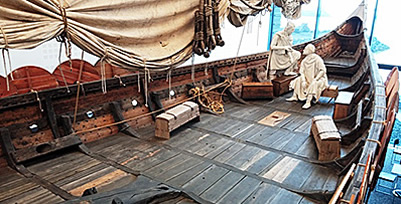

Ye make clean the outside of the cup, but within they are full of extortion and excess Thou blind Pharisee, cleanse first that which is within the cup and platter, that the outside of them may be clean also. Woe unto you, scribes and Pharisees, hypocrites! for ye make clean the outside of the cup and of the platter, but within they are full of extortion and excess. We do not have to create the oil, we just have to be willing to pour. It is an astounding charity of God, for He performs the miracle, but then rewards us as if it had been our own merit. The grace of God that flows through us and into others also purifies our own hearts and absolves us of our sins. Go, sell the oil, and pay thy debt, and live So long as another vessel was present and the oil pot tried to share with it, God made up the difference. In and of itself, the pot didn’t have enough either, but somehow it found its extra oil in the giving of what it had. It is easy for us to say that we don’t contain enough goodness or capability to fill the soul of another, but frankly we don’t have to. When God asks to work through us we might feel that we are little more than a simple pot as well. Once blessed by the hand of God that pot was able to not only fill itself, but also every other vessel it came in contact with. For it wasn’t the pot that mattered, just so long as it was a container from which blessings could flow. It was all that she gave God to work with, but it was more than enough. The handmaid had nothing but a single pot of oil in her house. She shut the door upon her and her sons, who brought the vessels to her and she poured out Thine handmaid hath not any thing in the house, save a pot of oil And he said, Go, sell the oil, and pay thy debt, and live thou and thy children of the rest. And he said unto her, There is not a vessel more. So she went from him, and shut the door upon her and upon her sons, who brought the vessels to her and she poured out.Īnd it came to pass, when the vessels were full, that she said unto her son, Bring me yet a vessel. Then he said, Go, borrow thee vessels abroad of all thy neighbours, even empty vessels borrow not a few.Īnd when thou art come in, thou shalt shut the door upon thee and upon thy sons, and shalt pour out into all those vessels, and thou shalt set aside that which is full. If the only perfect man that ever lived testified that even he was merely a conduit for the goodness of God, then perhaps we ought to start recognizing the great honor that is in that calling.Īnd Elisha said unto her, What shall I do for thee? tell me, what hast thou in the house? And she said, Thine handmaid hath not any thing in the house, save a pot of oil. Yet even Jesus refused to be recognized as such (Mark 10:18). We desire fame and recognition, and wish for other people to call us good. Each one of us wants to be inventors, artists, performers, athletes…someone who creates something and does it all on their own and receives all the credit for it.

The notion of only being a conduit for good is in direct contradiction to a part of our nature.

The image of a vessel is used many times in the scripture, and many times it is to reinforce this image of our relationship to God’s goodness. At the end of my last study I considered how our role in life is to be a worthy vessel, one through which God can pour out His goodness.


 0 kommentar(er)
0 kommentar(er)
